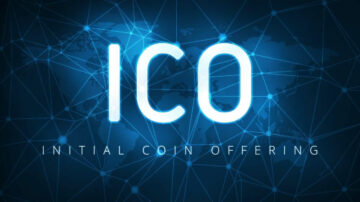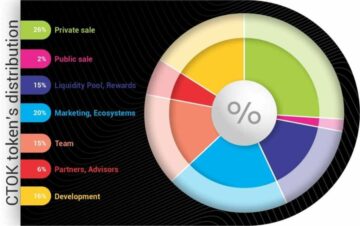
Verifiable Random Function (VRF) is now operational on the KCC mainnet and testnet after activating the project registration channel for the KCC Gas Revenue Program on March 9. This was done to enhance the blockchain development environment further.
The market is recovering after the general downturn, although it has not yet hit its top. Most public chains, centralized or decentralized exchanges, and other initiatives are still working to make up for their prior losses. However, KCC adopts a novel strategy by continually rewarding developers and improving developer tools. What does it want to achieve exactly?
We previously examined the BSC (Binance Smart Chain), KCC, and OKC public chains (OKEx Chain) ecosystems. Each has, of course, its own merits. Still, KCC has recently been developing VRF developer tools and financial incentives continually, perhaps to upset the relative balance between the three and reclaim more market share. Yet, the market has seen both VRF and developer incentives before.
As a result, We researched KCC VRF to understand the fundamental concepts and the driving forces behind this new exchange public chain. In the end, KCC is a technology-focused public chain that is highly accommodating to developers, even during the cold start stage. It has the sincerity, technical expertise, and desire to handle project participants’ pain points and challenges.
What is KCC VRF?
To prevent confusing the reader, let’s first define VRF before we go on to clarify this idea.
As random numbers make applications unpredictable, random number generation (RNG) is a crucial step in many software development processes. Its unpredictability hinders hostile actors from breaking the system down to its component parts, as well as introducing surprise aspects, determining process outcomes, and confirming the generation of unique items and events in the program.
Yet, it is a very challenging undertaking to guarantee the unpredictability and unalterability of RNG.
As I said before, with the buzz around public chains waning in recent years, NFTs, GameFi, and communities are receiving more attention. The fairness of NFT minting, community lotteries, random airdrops, and player versus player (PvP) combat directly depends on the openness and consistency of the RNG.
As a result, people are more motivated to create smart contracts based on random numbers because their value is rising.
It is particularly crucial to remember that smart contracts are data-driven programs that do not require human involvement and cannot be altered. In order to protect significant amounts of user money, smart contracts must use extremely secure and dependable random number generation.
- SEO Powered Content & PR Distribution. Get Amplified Today.
- Platoblockchain. Web3 Metaverse Intelligence. Knowledge Amplified. Access Here.
- Source: https://www.financebrokerage.com/which-vrf-bsc-or-kcc-is-superior/
- :is
- $UP
- 9
- a
- Achieve
- activating
- actors
- After
- Airdrops
- Although
- amounts
- and
- applications
- ARE
- around
- AS
- aspects
- attention
- Balance
- based
- BE
- because
- before
- behind
- between
- binance
- Binance Smart Chain
- blockchain
- blockchain-development
- Breaking
- BSC
- by
- cannot
- centralized
- chain
- chains
- challenges
- challenging
- Channel
- combat
- Communities
- community
- component
- concepts
- confusing
- continually
- contracts
- course
- create
- crucial
- data-driven
- decentralized
- decentralized-exchanges
- dependable
- depends
- determining
- Developer
- developers
- developing
- Development
- directly
- down
- DOWNTURN
- driving
- during
- each
- Ecosystems
- Environment
- Even
- events
- exactly
- exchange
- Exchanges
- expertise
- extremely
- fairness
- financial
- First
- For
- Forces
- from
- function
- fundamental
- further
- Gamefi
- GAS
- General
- generation
- Go
- guarantee
- handle
- highly
- hinders
- Hit
- However
- HTTPS
- human
- i
- idea
- improving
- in
- Incentives
- initiatives
- introducing
- involvement
- IT
- items
- ITS
- jpg
- losses
- mainnet
- make
- many
- March
- Market
- minting
- money
- more
- most
- motivated
- New
- NFT
- NFTs
- novel
- number
- numbers
- of
- OKEx
- on
- Openness
- operational
- order
- Other
- own
- Pain
- Pain points
- particularly
- parts
- People
- perhaps
- plato
- Plato Data Intelligence
- PlatoData
- player
- points
- prevent
- previously
- Prior
- process
- processes
- Program
- Programs
- project
- protect
- public
- random
- Reader
- receiving
- recent
- recently
- recovering
- Registration
- remember
- require
- result
- revenue
- rewarding
- rising
- Said
- secure
- Share
- significant
- smart
- Smart Chain
- Smart Contracts
- Software
- software development
- Stage
- start
- Step
- Still
- Strategy
- superior
- surprise
- system
- Technical
- testnet
- that
- The
- The Buzz
- their
- three
- to
- tools
- top
- understand
- unique
- unpredictable
- use
- User
- value
- Versus
- WELL
- What
- which
- with
- working
- years
- zephyrnet












